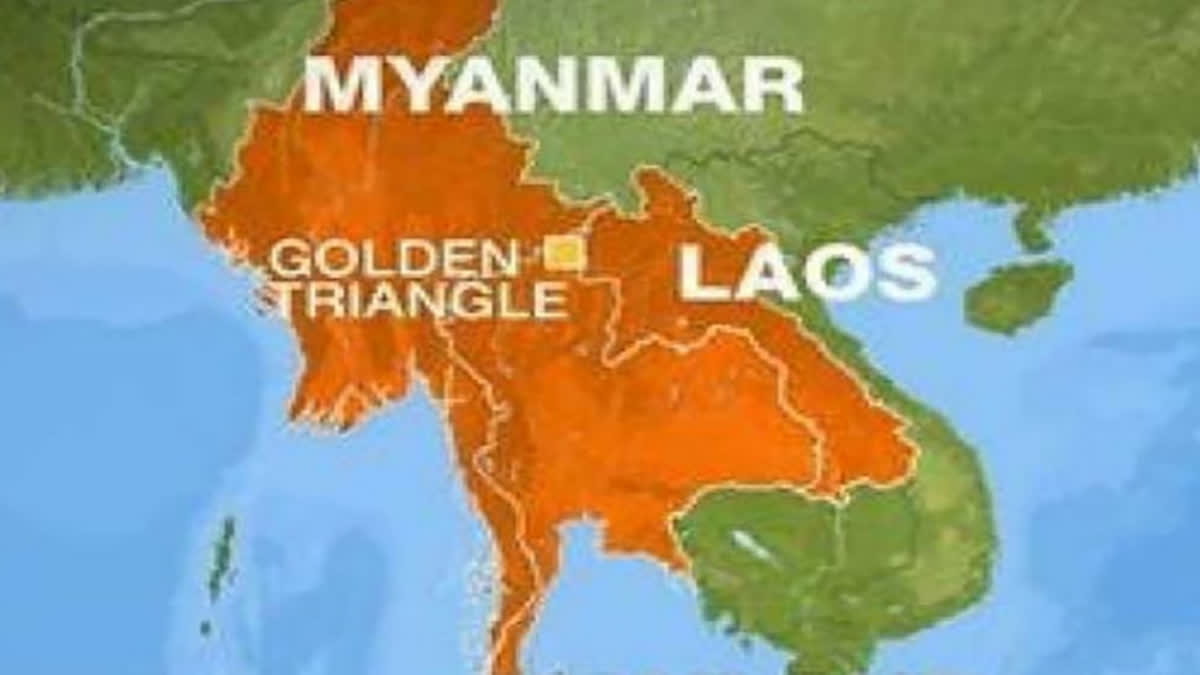The ethnic unrest, which rattled Manipur last week and is giving jitters to the security establishment in New Delhi, has its genesis in the long-standing drug menace--a factor fanned by the drug mafia of the notorious Golden Triangle, a security official said.
For decades, the northeastern state, which shares a 398-long international border with Myanmar, has been the biggest casualty of the drug war involving drug cartels of Myanmar, Laos and Thailand in Southeast Asia's oldest narcotics supply route to Europe and North America. "There is something more sinister than what meets the eye. The old wound, which showed signs of healing after a drastic crackdown on the drug mafia and poppy cultivation is festering again. The situation is pretty alarming," said a counter-insurgency official based in the Northeast.
The repercussion of the simmering issue is felt across the country. On Monday, West Bengal Chief Minister Mamata Banerjee gave Home Minister Amit Shah a piece of her mind without taking his name. In a veiled attack on Shah, who is visiting West Bengal, Mamata said Shah should visit Manipur, which is witnessing unprecedented violence over the last few days, first and then think about his Bengal trip.
The ethnic skirmish has so far left 50 people dead and hundreds hospitalised besides displacing 23,000. The security official, who refused to be named, further said he fears that the violent trend can revive bloody days of insurgency in the restive region inhabited by Meiteis, Kukis and Nagas. He gave further details about the cascading impact of the unrest. "The unrest is not just what it appears from the surface. I see the hand of deep state players with roots in Myanmar which had been a breeding ground of more than 30 big or small insurgent groups having bases in Assam, Manipur, Nagaland and Tripura. Manipur is not only a transit route of narcotics but also a hotbed of drug cartels remote controlled by bosses from Golden Triangle," he told ETV Bharat.
According to him, the Manipur government's 'War on Drugs' drive on poppy cultivation and handlers in cultivation hotbeds such as bordering Ukhrul, Kangpokpi, Kamjong, Churachandpur and Tengnouopal has unsettled the drug lords in Myanmar. The official said 'deep state conspirators' orchestrated the ethnic violence which reached a flashpoint on May 3 after the All Tribal Students Union Manipur (ATSUM) held a solidarity march in all districts opposing the recent Manipur High Court order, which had asked the Manipur State government to send a recommendation to the Centre regarding the demand to include the Meitei community in the Scheduled Tribes (STs) list.
The latest and most severe crackdown on poppy cultivation in January resulted in the arrest of 703 people including five chiefs of hill villages and the destruction of 400 acres of poppy fields. The views of the security officers were echoed by a highly placed official, who cited figures to substantiate his claim. "Around 18,000 acres of illicit poppy were destroyed by officials between 2017 to 2022. You can imagine the gravity of the menace. Drug cartel members with allegiance to Myanmar rackets are moving with arms out in the open. Often innocent people become victims of their gang wars even in Imphal. Moreh, Thoubal, Churachandpur and Kangpokpi areas are notorious for such activities. You're seeing the unrest now but never know what it will be like if it snowballs further," said Suranjoy Singh. According to Suranjoy, Manipur Chief Minister Biren Singh has often termed the anti-drug drive as a people's movement but his efforts have often met with resistance in Kuki and Naga-dominated areas.
Manipur drug cartels old link with Golden Triangle drug mafia
